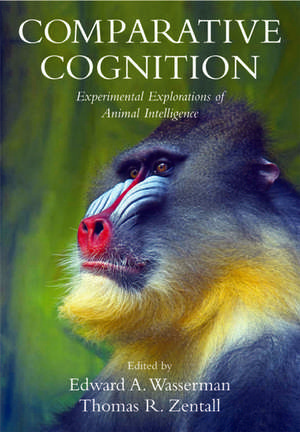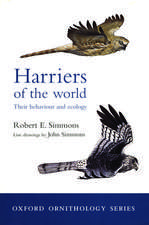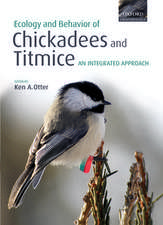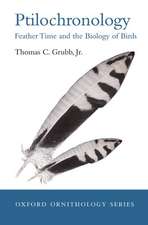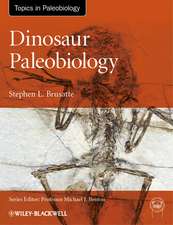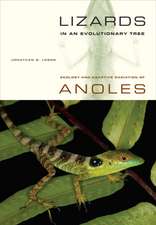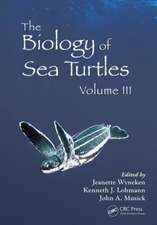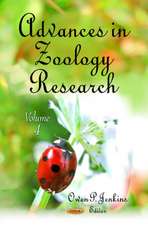Comparative Cognition: Experimental Explorations of Animal Intelligence
Editat de Edward A Wasserman, Thomas R. Zentallen Limba Engleză Paperback – 7 mai 2009
Preț: 534.67 lei
Preț vechi: 796.51 lei
-33% Nou
Puncte Express: 802
Preț estimativ în valută:
102.31€ • 107.09$ • 85.15£
102.31€ • 107.09$ • 85.15£
Carte tipărită la comandă
Livrare economică 21-27 martie
Preluare comenzi: 021 569.72.76
Specificații
ISBN-13: 9780195377804
ISBN-10: 019537780X
Pagini: 720
Ilustrații: 52 ht, 261 lines
Dimensiuni: 173 x 251 x 33 mm
Greutate: 1.2 kg
Editura: Oxford University Press
Colecția OUP USA
Locul publicării:New York, United States
ISBN-10: 019537780X
Pagini: 720
Ilustrații: 52 ht, 261 lines
Dimensiuni: 173 x 251 x 33 mm
Greutate: 1.2 kg
Editura: Oxford University Press
Colecția OUP USA
Locul publicării:New York, United States
Recenzii
Excellent book...Highly recommended.
...an invaluable resource for all working or being interested in the wide field of comparative psychology and neuroscience.
Those who study comparative cognition find themselves in a particularly prosperous time . . . A diversity of available species to study, opportunities for increased national and international collaboration, and technological advances offer us a greater opportunity for data collection and dissemination than at any time in history. The present book attests to how these opportunities can produce compelling research programs that serve as excellent models for the future of comparative cognition.
...an outstanding collection of chapters by an exceptional group of researchers. A unique aspect is the strong reliance on experimental science in each of the research programs. One chapter after another provides a critical analysis of the state of knowledge about a fascinating cognitive ability . . . Everyone interested in the cognitive and intellectual capacities of animals should read this book.
This book is a gem . . . It will be a 'must read' for students and scientists who are curious about the state of the art of the modern science of comparative cognition.
. . . sure to become a major landmark in long history of this continually evolving field.
...an invaluable resource for all working or being interested in the wide field of comparative psychology and neuroscience.
Those who study comparative cognition find themselves in a particularly prosperous time . . . A diversity of available species to study, opportunities for increased national and international collaboration, and technological advances offer us a greater opportunity for data collection and dissemination than at any time in history. The present book attests to how these opportunities can produce compelling research programs that serve as excellent models for the future of comparative cognition.
...an outstanding collection of chapters by an exceptional group of researchers. A unique aspect is the strong reliance on experimental science in each of the research programs. One chapter after another provides a critical analysis of the state of knowledge about a fascinating cognitive ability . . . Everyone interested in the cognitive and intellectual capacities of animals should read this book.
This book is a gem . . . It will be a 'must read' for students and scientists who are curious about the state of the art of the modern science of comparative cognition.
. . . sure to become a major landmark in long history of this continually evolving field.
Notă biografică
Edward A. Wasserman earned his B.A. at UCLA and his Ph.D. at Indiana University. He is now Stuit Professor of Experimental Psychology at the University of Iowa. Thomas R. Zentall earned his B.S. degree in psychology, his B.E.E. in Electrical Engineering from Union College in 1963, and his Ph.D. from the University of California at Berkeley in 1969. After an appointment at the University of Pittsburgh, he joined the faculty at the University of Kentucky, where he is now Professor of Psychology.
